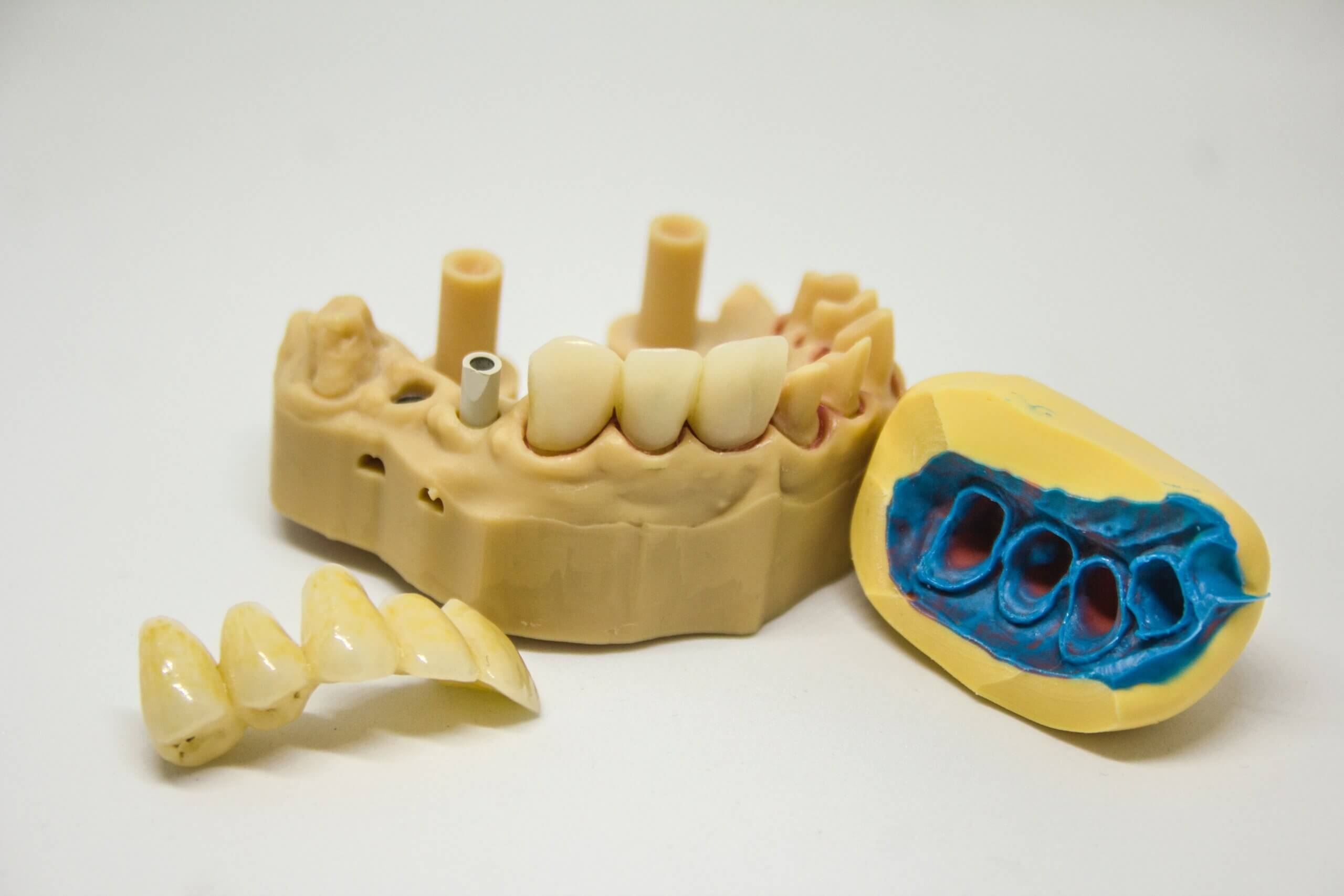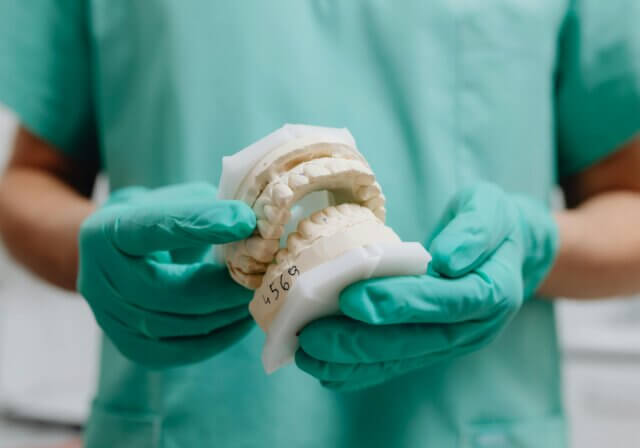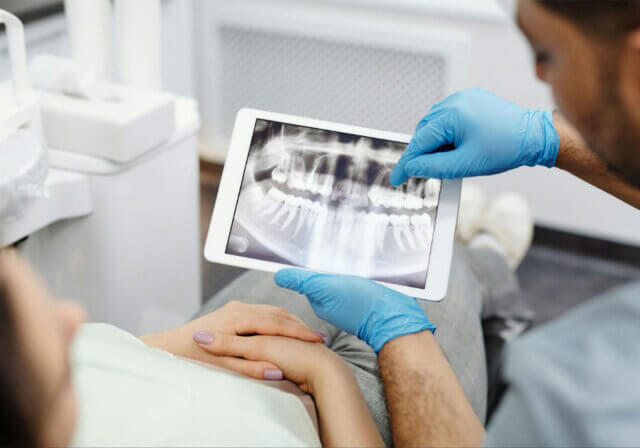Hello, world! I’m Dr. Michael Webster, and I’m the Owner and dedicated Implant Dentist here at Kelowna Dental Centre. When we’re consulting a patient who’s interested in a dental implant-based procedure, we often get asked how many types of dental implants there are and which is best for them. But the “best” dental implant types depend on factors like a patient’s bone density and overall oral health goals.
Alternative implants may be more suitable in cases where traditional implants cannot be placed due to jaw bone degeneration. Our experienced, skilled team will evaluate your teeth, jaw health, and goals to determine the most suitable dental implant plan for your unique needs.
Let’s explore (some of) the types of dental implants in more detail.
All-on-4 Dental Implants
All-on-4 dental implants offer a comprehensive solution by restoring an entire arch with just four strategically placed implants. This innovative procedure brings notable benefits, like shorter treatment times, increased stability, and improved chewing functionality. It’s particularly suitable for patients with extensive tooth loss seeking permanent teeth that mimic natural ones.
3-on-6 Dental Implants
3-on-6 dental implants offer a fixed bridge restoration option for individuals with multiple missing teeth, similar to the All-on-4 concept. Three missing teeth can be effectively replaced with six implants supporting a bridge. This approach is designed for patients who have sufficient jawbone structure and oral anatomy to accommodate the placement of six implants, resulting in enhanced stability and improved oral function.
All-on-X Dental Implants
All-on-X dental implants combine the benefits of the All-on-4 or 3-on-6 techniques with additional implants to enhance stability and support. By tailoring the implant placement to meet each patient’s distinct needs, All-on-X implants ensure ideal outcomes and a personalized approach for restoring a full arch of teeth.
Implant-Supported Dentures
Implant-supported dentures offer the advantages of dental implants combined with the convenience of dentures. By securely attaching dentures to implants, patients enjoy improved stability and enhanced chewing and speaking abilities. This approach is especially beneficial for individuals struggling with loose or ill-fitting dentures, as it restores comfort and confidence. With implant-supported dentures, patients can enjoy a wider variety of foods and efficiently absorb essential nutrients.
Implant-Supported Bridges
Implant-supported bridges are ideal for individuals with multiple missing teeth in a row. Instead of relying on adjacent healthy teeth, the implants are strategically placed at each end of the gap to provide support for the bridge. This approach offers enhanced stability and durability while preserving the integrity of neighboring teeth.
Endosteal and Subperiosteal Implants
Endosteal implants, which are the most common type of dental implants, involve the placement of a titanium screw directly into the jawbone. Successful integration of endosteal implants relies on sufficient bone density. In contrast, subperiosteal implants are an alternative for individuals with lower bone density, as they are placed on or above the jawbone and below the gum line.
Pterygoid and Zygomatic Implants
Pterygoid and zygomatic implants offer advanced solutions for patients with significant bone loss in the upper jaw. Pterygoid implants are anchored in the pterygoid bone, located behind the upper jaw, while zygomatic implants are anchored in the zygomatic bone, extending from the cheekbone. These specialized implants provide stability and enable the successful placement of prosthetic teeth, particularly in situations where conventional implants aren’t feasible.
Nasal Rim and Nasal Spine Implants
Nasal rim and nasal spine implants are specifically designed for cases where the loss of upper teeth has caused the collapse of the nasal cavity, impacting nasal support and appearance. These implants are used to restore the structural integrity of the nose, offering both aesthetic and functional improvements.
Immediate vs. Delayed Implants
Immediate or same-day dental implants are placed immediately after tooth extraction, eliminating the need for multiple appointments and providing instant aesthetic improvements. This technique also offers the advantage of immediate results. On the other hand, delayed dental implants involve a waiting period of approximately 4-6 months between extraction and implant placement. This allows for proper healing, especially in more complex cases, before the implants are inserted.
Dental Implant Questions? We’re Here to Help
So there you have it! An overview of (some of) the different types of dental implants. As you can see, there’s a myriad of different options, and knowing which is best for you requires the support of a professional team.
If you’re considering dental implants to enhance your oral health and overall well-being, get in touch with us today. We’d love to walk you through the process and work together to define your goals, then create a comprehensive care plan to get you there.
Call now (1-866-257-7744) to schedule your dental implant consultation with us today – together, we’ll make your dream smile a reality.
We can’t wait to care for you!
Dr. Michael Webster
Kelowna Dental Centre Owner
Implant Dentist
Implant Dentist Kelowna
Kelowna Implant Dentist
Dental Implants Kelowna



